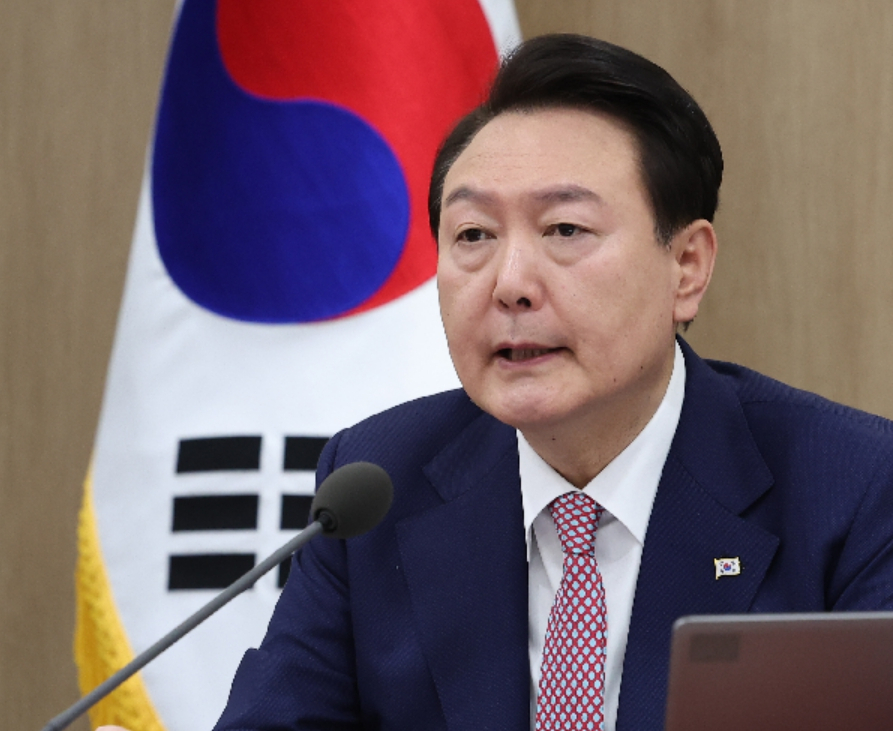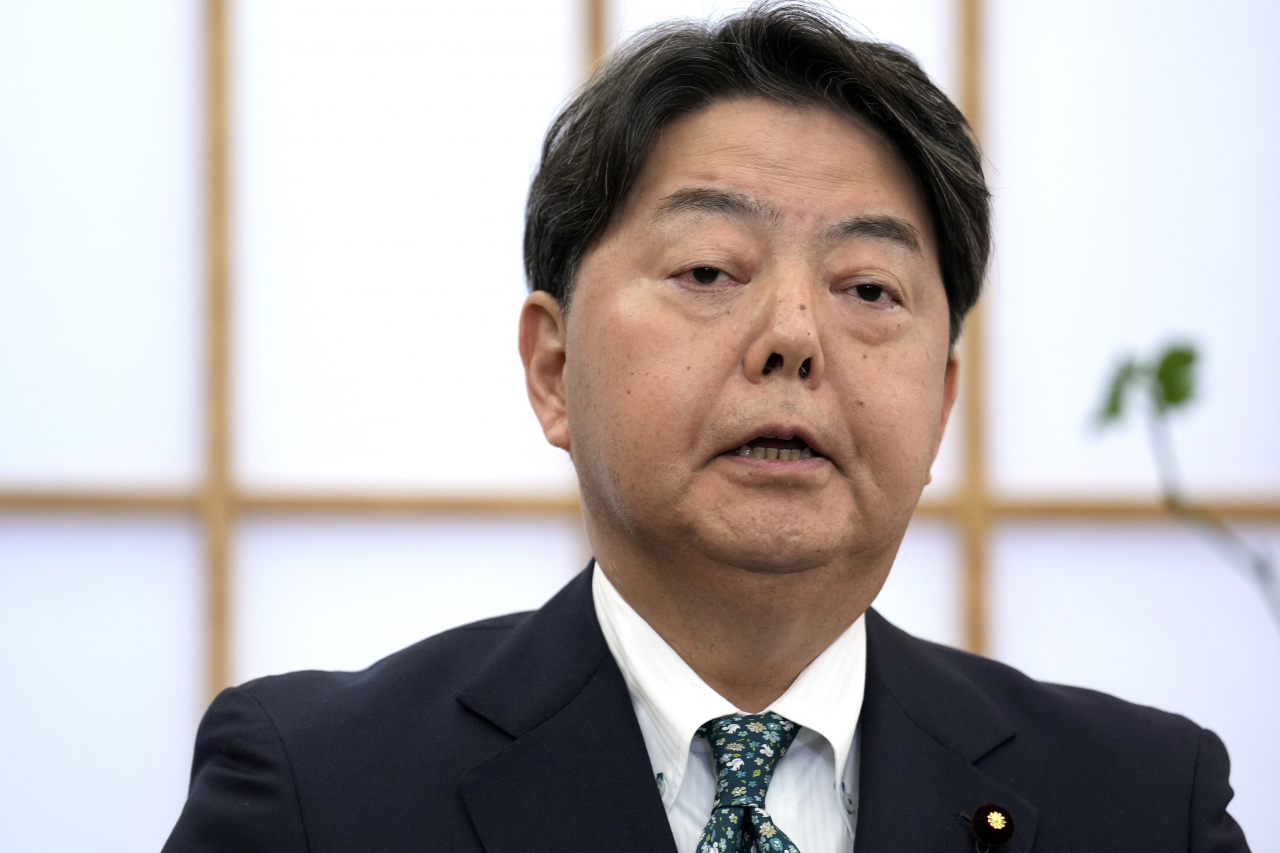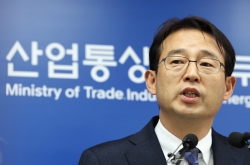 |
President Yoon Suk Yeol speaks at a Cabinet meeting held Tuesday in Seoul. (Yonhap) |
South Korea's presidential office on Sunday reaffirmed its push to ease strains over the wartime forced labor dispute with Japan amid further backlash following the Japanese Foreign Affairs Minister's refusal to acknowledge the victims as forced laborers.
President Yoon Suk Yeol's office released Sunday clips of Yoon saying during the closed-door meetings with the Cabinet on Tuesday that his effort to mend ties with Japan "will deliver on his presidential election campaign promise" as Korea "feels a dire need to revitalize exchanges in the field of economy, regional security and culture."
The video also zoomed in on a nameplate on his desk that reads, "The buck stops here," a phrase popularized by former US President Harry Truman and gifted by US President Biden to Yoon during his visit to Korea in May last year. The phrase demonstrates "Yoon's determination to responsibly address the bilateral relationship of Korea and Japan that has remained sour for the past five years," according to Yoon's office in a statement.
Yoon's office reiterated its stance that his move is on par with that of a joint declaration in 1998 by former president Kim Dae-jung and former Japanese Prime Minister Keizo Obuchi.
The remarks came a few days ahead of Yoon's state visit to Japan for a summit with his Japanese counterpart Fumio Kishida in the coming week from March 16-17. It would be the first bilateral meeting between the Korean and Japanese heads of state in about 11 years.
Tensions between the two countries began to ease as Seoul announced on March 6 plans to compensate forced labor victims during Japan's occupation from 1910 to 1945 using a fund not necessarily backed by Japanese entities. Seoul and Tokyo also resumed talks to lift Tokyo's export curbs on Korea over key industrial materials following the March 6 agreement.
The announcement was welcomed by the United States and international communities, seeking to boost regional security against challenges posed by North Korea and China.
However, the deal triggered criticism here as the renewed plan did not obligate Tokyo to issue an additional apology or Japanese firms to compensate the victims directly. In 2018 during the former Moon Jae-in administration, a top South Korean court ordered Japanese firms to compensate victims.
The Supreme Court ruled in a 7-6 decision that the Korean workers who were forced to do unpaid labor for Japanese companies cannot be covered by the 1965 Korea-Japan Treaty of Basic Relations. The top court claimed Tokyo's payment of a combined $500 million to Seoul in grants and loans was meant to establish political consent between the two countries, not to seek a remedy from the "unlawful and inhumane deeds" against individuals.
Tokyo refused to comply with the court decision, claiming that the 1965 treaty had stripped the forced labor victims of the rights to seek damages.
 |
Japanese Foreign Minister Yoshimasa Hayashi speaks to media outlets at his office on Monday (AP-Yonhap) |
The latest remark by the Japanese Minister of Foreign Affairs Yoshimasa Hayashi resonated with Tokyo's stance over the forced labor issues.
A media report revealed that Hayashi insisted that the forced labor issue had been completely and finally resolved by the 1965 treaty, and that the expression "forced mobilization" is inappropriate to describe any labor forces from Korea.
None of the laborers who worked for Japanese companies during World War II fall under the category of forced labor under the Convention on Forced Labor, Hayashi told lawmakers upon an inquiry by Japan's legislature on Thursday, adding that it was “inappropriate” to describe the victims as forced laborers.
This sparked criticism over the Yoon administration's approach to resolving Korea-Japan ties, with some calling it “humiliating."
At a demonstration held near Seoul Plaza on Saturday in a show of defiance against Yoon's decision, the main opposition Democratic Party of Korea leader Lee Jae-myung said Yoon "bent to Japan again" by letting Japanese firms off the hook for mandatory compensation to forced labor victims
"How can we ensure peace on the Korean Peninsula and in the world with Japan that denies past wrongdoings and wartime atrocities?" Lee said. "No Japanese boots should be on Korean soil, even in the name of a military exercise."










![[Today’s K-pop] Blackpink’s Jennie, Lisa invited to Coachella as solo acts](http://res.heraldm.com/phpwas/restmb_idxmake.php?idx=644&simg=/content/image/2024/11/21/20241121050099_0.jpg)
